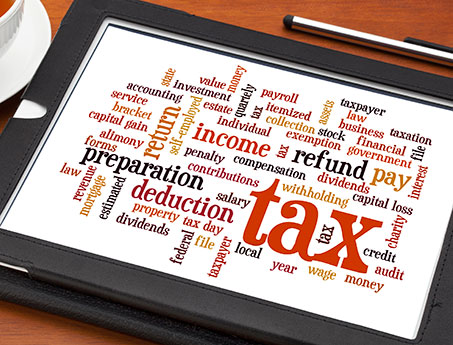Donations are a great way to give to a deserving charity, and they also give back in the form of a tax deduction. Unfortunately, charitable donations are under scrutiny by the IRS, and many donations without adequate documentation are being rejected. Here are six things you need to do to ensure your charitable donation will be tax-deductible:
1. Make sure your charity is eligible. Only donations to qualified charitable organizations registered with the IRS are tax-deductible. You can confirm an organization qualifies by calling the IRS at (877) 829-5500 or visiting the IRS website.
2. Itemize. You must itemize your deductions using Schedule A in order to take a deduction for a contribution. If you’re going to itemize your return to take advantage of charitable deductions, it also makes sense to look for other itemized deductions. These include state and local taxes, real estate taxes, home mortgage interest and eligible medical expenses over a certain threshold.
3. Get receipts. Get receipts for your deductible contributions. Receipts are not filed with your tax return but must be kept with your tax records. You must get the receipt at the time of the donation or the IRS may not allow the deduction.
4. Pay attention to the calendar. Contributions are deductible in the year they are made. To be deductible in 2017, contributions must be made by Dec. 31, although there is an exception. Contributions made by credit card are deductible even if you don’t pay off the charge until the following year, as long as the contribution is reported on your credit card statement by Dec. 31. Similarly, contribution checks written before Dec. 31 are deductible in the year written, even if the check is not cashed until the following year.
5. Take extra steps for noncash donations. You can make a contribution of clothing or items around the home you no longer use. If you decide to make one of these noncash contributions, it is up to you to determine the value of the contribution. However, many charities provide a donation value guide to help you determine the value of your contribution. Your donated items must be in good or better condition and you should receive a receipt from the charitable organization for your donations. If your noncash contributions are greater than $500, you must file a Form 8283 to provide additional information to the IRS about your contribution. For noncash donations greater than $5,000, you must also get an independent appraisal to certify the worth of the items.
6. Keep track of mileage. If you drive for charitable purposes, this mileage can be deductible as well. For example, miles driven to deliver meals to the elderly, to be a volunteer coach or to transport others to and from a charitable event can be deducted at 14 cents per mile. A log of the mileage must be maintained to substantiate your charitable driving.
Remember, charitable giving can be a valuable tax deduction – but only if you take the right steps.







heart touching article, thanks for sharing this type of article. we provide QuickBooks Payroll Online help which is related to accounting software. for more: QuickBooks Payroll Online
Thank your for your feedback.
It’s great to come across a blog every once in a while that isn’t the same outdated rehashed information. Wonderful read! I’ve saved your site and I’m including your RSS feeds to my Google account.
It was amazing to read such an informative blog on Donations and charity, Thanks for sharing!